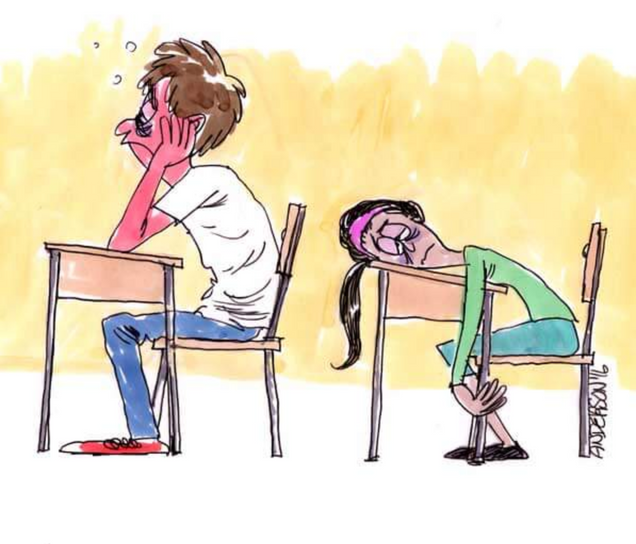Later school starting times strengthen positive effects of good sleep hygiene and sleep quality

Without a doubt, we all remember the dark, dreary days of high school: waking up at 6:00 in the morning, sitting on the bed, eyes still half-closed, while your mind drifts in and out of light dreams. After finally mustering enough energy to check your phone, it’s 6:30. Your mind snaps awake once you realize it’s only 15 minutes before the bell rings for the first period of class.
As schools get more competitive, many students end up overloading their classes and extracurricular activities, resulting in shorter sleeping times and poor sleep hygiene. Along with a rigorous schedule, there’s the burdensome amount of anxiety and pressure to succeed. As such, it wouldn’t be very far-fetched to assume that stress and anxiety would be major contributing factors to the increasing rates of anxiety disorders and depression among adolescents. According to census “in 2015, 3 million teens ages 12 to 17 had had at least one major depressive episode in the past year,” and 6.3 million teens experienced some form of anxiety disorder.
Jack S. Peltz, an assistant professor from Daemon College, conducted a recent study that correlates later school start times with improved mental health and reinforces the idea that good sleep hygiene is crucial to the functioning of adolescents during the day time. Data was collected from 197 different adolescents from the ages 14 to 17. The adolescents were separated into two groups, those who started school before 8:30 a.m. and those who started school after 8:30 a.m. Participants were instructed to keep a sleep journal that recorded both the quality and duration of their sleep, and any signs of depression or anxiety experienced during the day. Sleep hygiene was measured through a self-report survey, using the Adolescent Sleep Hygiene Scale which considers nine different factors that can inhibit sleep: “physiological, cognitive, emotional, sleep environment, daytime sleep, substance use, bedtime routine, sleep stability, and bedroom sharing”. Conceivably, students who maintained better sleep hygiene practices showed a lower number of anxiety and depression symptoms. However, this relationship between sleep hygiene and mental health was much stronger in students who started school after 8:30 a.m.
Although many studies, such as the one described above, demonstrate convincing evidence that longer sleeping times and better sleep quality have positive impact on mental illness in adolescents, only 14% of schools in the United States have changed their school starting times to later than 8:30 in the morning. Hopefully, schools will eventually recognize the increasing mental health problems in adolescents, and ultimately change the system to ensure longer sleeping times and to promote mental health.
Writer: Audrey Kim
Editor: Albert Wang
Sources:
Teen Depression and Anxiety: Why the Kids Are Not Alright
The moderating role of school start times